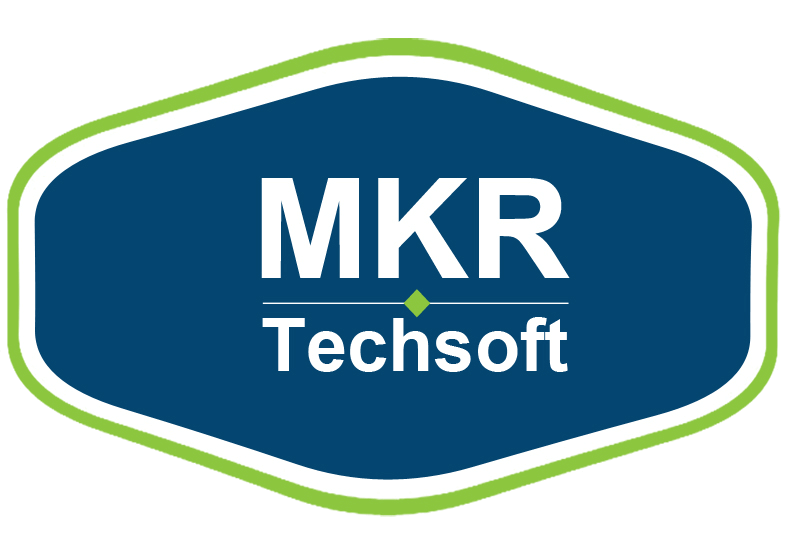Google routinely adjusts its algorithms to enhance the caliber of search results and give its consumers pertinent, useful information. These updates can have a significant impact on websites and their search rankings, so it’s important for businesses and website owners to understand and stay informed about the changes. It is possible to make sure that your website continues to perform effectively in search results, draw visitors, and accomplish its objectives by keeping up with Google improvements.
Recently Google rolled out the new “Dec Update” that was focused on providing more helpful and relevant content to users. The purpose of these updates is to improve the overall user experience by ranking high-quality, relevant websites higher in search results and demoting low-quality or spammy websites. However, the specific details of the updates were not publicly disclosed by Google.
What Is Google’s Helpful Content Update?
The “Helpful Information Update,” a tweak to the Google algorithm, seeks to identify and highlight content that offers consumers a satisfying experience. If too many articles are flagged as “unhelpful,” the “Helpful Material Update” indicator, which affects the display of all content, may become less effective.
We made the decision to develop some suggestions that may aid SEOs and site owners in navigating the Helpful Content Upgrade in order to better assist websites and SEOs in preparing for this update. Just a reminder that these are projections. There will be additional details on the sorts of sites affected by this upgrade and the most effective tactics once it is implemented.
How to Prepare Your Website for the Google Helpful Content Update?
After Google’s Helpful Content update, many websites are thinking of prepping their website. Here we have given some actionable suggestions to help you stay on track with the actionable content:
Avoid Scaled Content Strategies Scaled content is one of the main areas of conflict between Google and content producers. It makes perfect sense for content producers to consider how to naturally grow the production of their materials. More content equals more assets that can be indexed. More prospects for organic traffic and, eventually, conversions may result from this.
Scaled content poses a serious danger to Google’s offering, though. What if the top-ranking items were all shoddy articles produced by an AI system from sites with high domain authority. The credibility of the site was able to make the page stand out in the search results even though the content might not have helped the user achieve their objective. As a consequence, Google search users could have a bad experience there, and there may eventually be a danger of searchers switching to other platforms.
While the majority of people are considering this in terms of AI-written educational articles, it is believed that there are other scaled content applications that might be influenced by this change. Allowing their internal search pages to be crawled is a method that many powerful domains have employed in the eCommerce arena. With just optimising the website for the helpful content update, Bed Bath & Beyond has produced millions of visits and probably a sizable amount of revenue.
These Sites Aren’t Always the Most Beneficial For Users
These search sites typically return products that aren’t really relevant to the main topic depending on product categorization. For example, there are several shower hook goods listed on the Bed Bath & Beyond page ranking for “shower curtain rods” that are useless to the consumer.
I think Google is sending a warning shot to websites that have employed scaled content strategies by announcing this modification. Although they have emphasized that auto-generated material is against their policies several times, this helpful content update reiterates that point.
I advise against growing content initiatives excessively. If you’re utilising AI-generated material of any kind, I’d suggest using it as a first draft and then having your specialists evaluate and revise the content to include their viewpoints and thoughts. These distinctive qualities will go a long way toward assisting the success of your content.
Maintain Consistency with Your Core Value Proposition in Your Content
Over the past ten years, SEO has experienced amazing development. If you’ve been in the business that long, it’s impossible to dispute that senior marketers are using SEO more often. As a result, agencies have grown, in-house teams have grown, and more marketers are considering search as a viable career path.
Companies have come to the realization that they have been passing up significant market share chances inside their own businesses throughout this period. They have thus established teams, developed strategies, and carried out the production of new material to close such gaps. In fact, Google has benefited from helpful content updates since it provides them more alternatives for serving material due to the increased level of competition.
Unfortunately, these investments have had harmful side effects. It goes without saying that larger, more experienced websites typically rank more easily. Companies have just come to understand the value of their websites as resources. Due to this, businesses have filled holes in their current sectors as well as entered new areas that they had never before been a part of.
For instance, CNET focuses largely on providing tech news. On the other hand, they’ve established a whole subdomain (coupons.cnet.com) devoted to collecting coupon bargains. This website now ranks extremely high for several coupon phrases, including “advanced auto coupons.”
Here, you may observe the enormous power of a powerful domain in action. Despite not having a site that is thematically relevant, they have managed to accumulate enormous amounts of traffic in a very short period of time with a helpful content update.
I think Google is attempting to distance itself even further from this influence. Even one of their queries specifically mentions this.
Did you choose a niche issue area without having any true knowledge but instead mostly because you believed you would receive search traffic?
Websites that rank for keywords unrelated to their speciality or primary value proposition may be more vulnerable during this upgrade.
We’ve even seen Google take action to lessen this type of behaviour with previous releases. Entrepreneur.com is a magazine and website that specializes in business and management-related content. However, they eventually included a franchises section on their website that compiles the best franchises from several business subcategories. Although one could argue that franchises are business-related, this connection is, at best tenuous.
This section’s organic traffic has been steadily declining in favour of authority on more pertinent current topics.
It’s possible that Google’s next “Helpful Content Update” will continue this pattern. Rewarding the sites that are thematically relevant while penalising those that have diversified into an excessive number of related marketplaces will help. If you have material that isn’t part of your company’s core value proposition, I’d advise watching it very carefully to see how it does over time in the rankings.
Employ the Idea of Information Gain Scores
The idea that data could gain scores is one of the patents that the late Bill Slawski evaluated that I love. Bill discusses how Google scans newly uploaded items to the index for net new material in the following article:
A page’s information gain score for a certain document denotes “extra information provided by a page beyond the information included in other pages already displayed to the user.”
In this patent, Google describes how they compare comparable information in other papers and may provide documents with material that the user is unlikely to have previously seen as a bonus.
So it seems to sense that incorporating this idea into your own material is one of the ways you may make it more “useful.” Where may you add viewpoints that haven’t been discussed in writing? Do you have any special data you can extract? Do you have unique screenshots and bespoke graphics that no other SERP result has?
Serious Eats is a website that excels at this. They heated up all of their goods and gathered unique data on the warmth at the skillet’s borders and in the centre for their article on the “Best Cast Iron Skillet.” After that, they plotted everything out to offer them a unique piece of imagery not found anywhere else on the SERP.
Your personal content strategy will be better guided if you comprehend this idea. Avoid just restating what has previously been said when optimising the site for a helpful content update because this may be seen as “unhelpful.” Instead, look for angles, resources, information, and additional angles to take your material that hasn’t been covered before.
Remove Any Current Unhelpful Content
A site-wide signal called Google’s Helpful Material Update will determine whether your domain has an excessive amount of “unhelpful” content for consumers. If so, it’s possible that even the naturally occurring visibility of your very helpful content diminishes. It makes sense that starting to remove any information that fits this description is one of the best ways you can be ready for this upgrade.

Here is a technique to assist you in starting to recognize flimsy or useless information.
- Activate Screaming Frog.
- Access to the Moz/Ahrefs backlink API as well as the Google Analytics API. Configuration > API Access contains this.
- Use the Spider mode to crawl your website. Filter if necessary using a certain directory.
There are now a few factors to take into account for this procedure:
It doesn’t necessarily follow that the material won’t be beneficial due to the short word count. It does, however, increase the likelihood.
Content should be unpublished rather than deleted. That way, if you decide to, you can always restore it.
Observe any stuff that doesn’t seem to be related to the issue at hand.
SEOs have long utilized content trimming to get rid of pointless articles on their sites and boost ranks. In the past, we’ve had success applying this method to customers. This may be a terrific approach to position your website such that a higher percentage of the content is rated as “useful.”
Wrap Up
Google’s campaign against affiliate websites may continue with the “Helpful Content Update.” Even one of Google’s queries, “Are you keeping in mind our recommendations for core upgrades and for product reviews?” makes a clear reference to this. Affiliate websites are known for using previously published information for new purposes. Thus they may be more vulnerable during this upgrade.
If you want to keep up with the latest Google update, visit MKR Techsoft Ltd. We keep your website updated with the latest Google update, so you never have to worry about the ranking.













